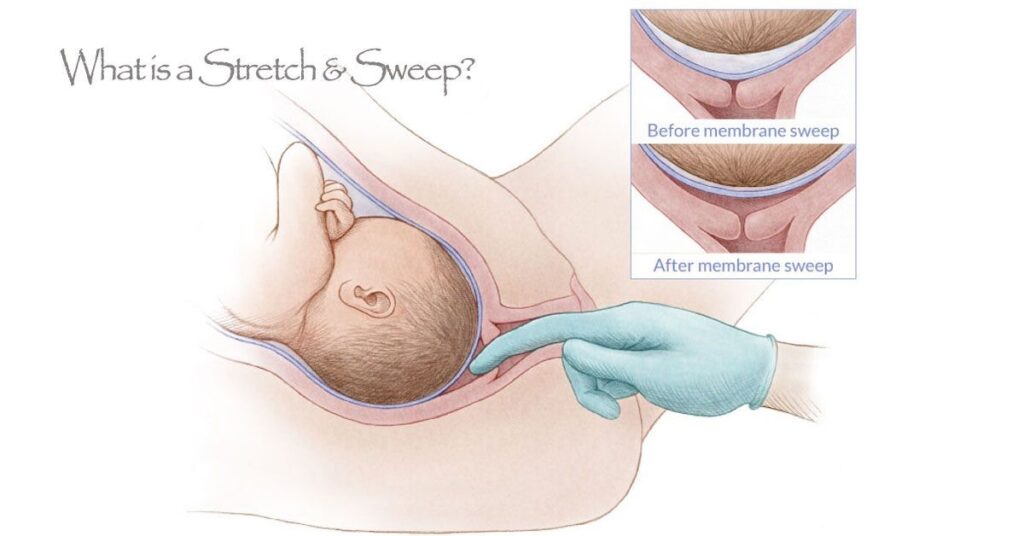What is a membrane sweep?
A membrane sweep, often referred to as a stretch and sweep, is a procedure that involves a midwife or doctor carrying out a vaginal examination and putting a finger inside your cervix and making a circular sweeping movement to separate the membranes (the bag of waters) from the cervix (the lowest part of your womb). It can be carried out at home or at an antenatal clinic.

Why would I be offered a membrane sweep?

A membrane sweep is usually offered in the hope that it will stimulate and bring on labour as it can increase the production of hormones called prostaglandins which can encourage labour to start. A membrane sweep is usually offered after you have reached your estimated due date as it is more likely to be successful at this point and is often more difficult to perform earlier than this. Sometimes a obstetrician may recommend a membrane sweep earlier in pregnancy (around 39 weeks).
Does it work?
Research has been shown there is an increase in the chances of labour starting within 48 hours of having a membrane sweep done and that is may reduce the need for other methods of induction of labour.
A recent review of the evidence available on membrane sweeping found that:
- 6 out of 10 women ended up in spontaneous labour without a membrane sweep (598 women in 1000).
- Just over 7 out of 10 women ended up in spontaneous labour with a membrane sweep (723 in 1000).
- 3 out of 10 women without a membrane sweep had their labour induced (313 women in 1000).
- 2 out of 10 women with a membrane sweep had their labour induced (228 women in 1000).
Reference: Finucane et al. 2020
Are there any risks?
The potential risks of a membrane sweep include:
- Discomfort.
- Light bleeding.
- Irregular contractions: which may interfere with your ability to rest and sleep in the last few days of your pregnancy.
- Vaginal examinations can carry a small risk of infection.
- There is a very small chance of the midwife or doctor breaking your waters during the examination, this is not common, but it does happen occasionally.
